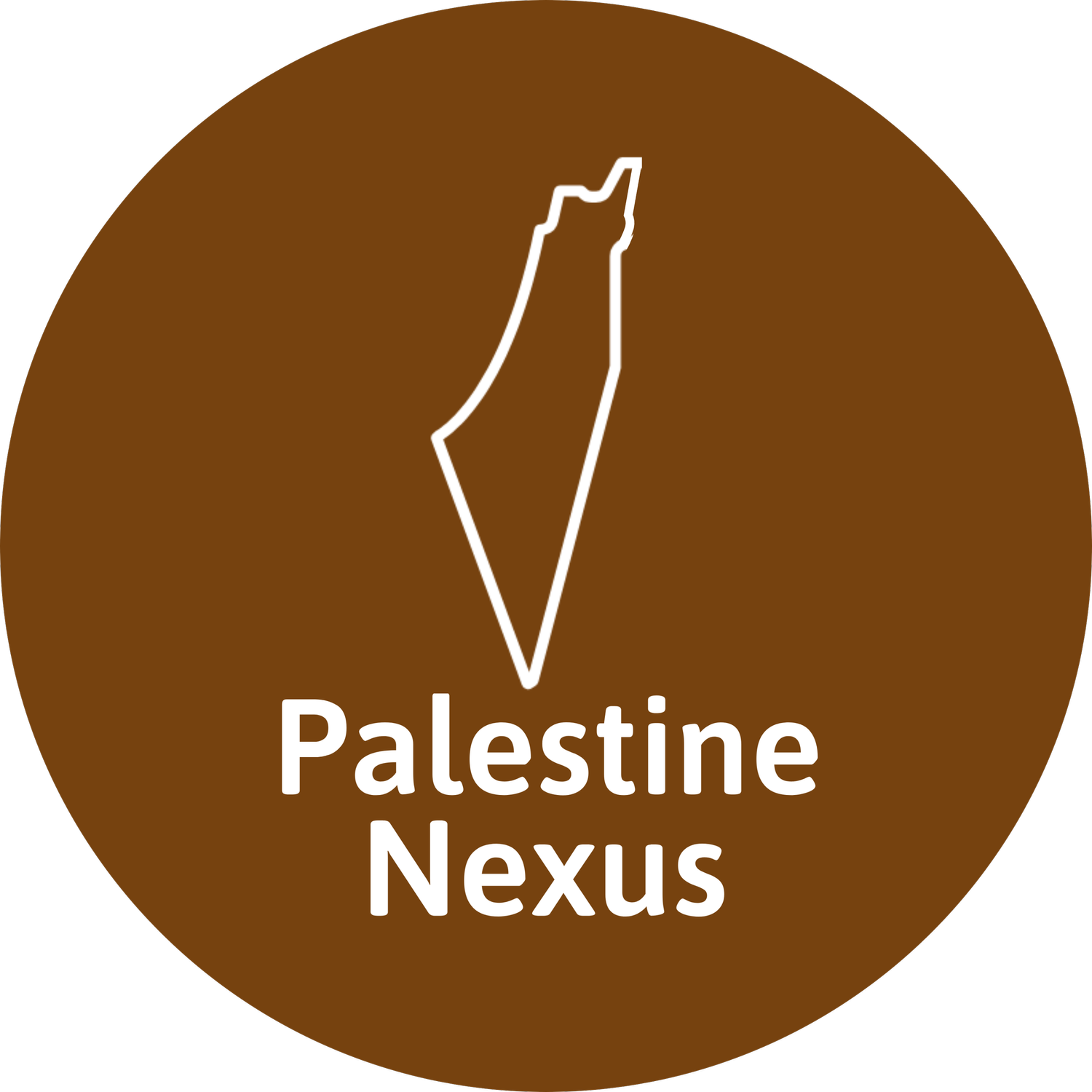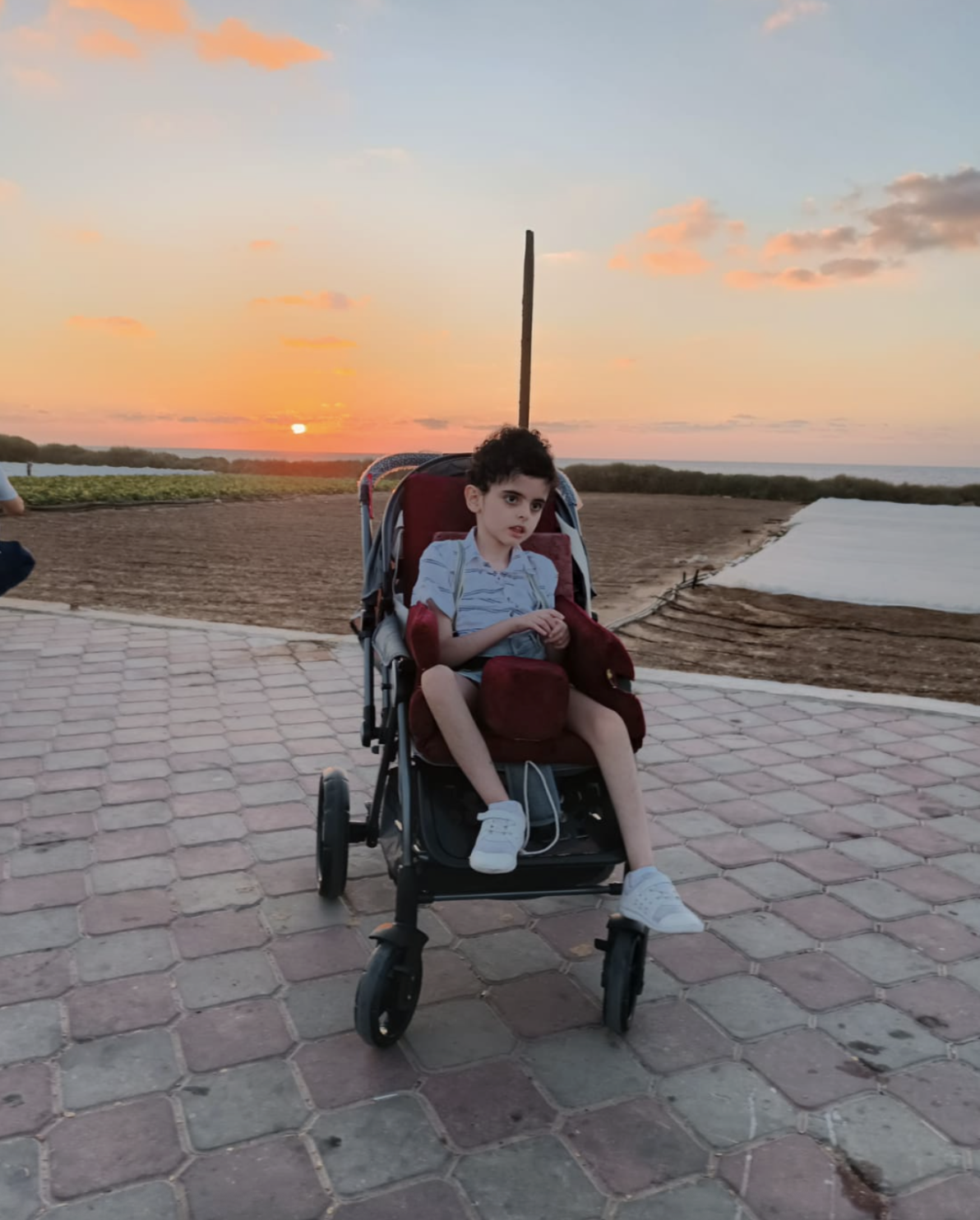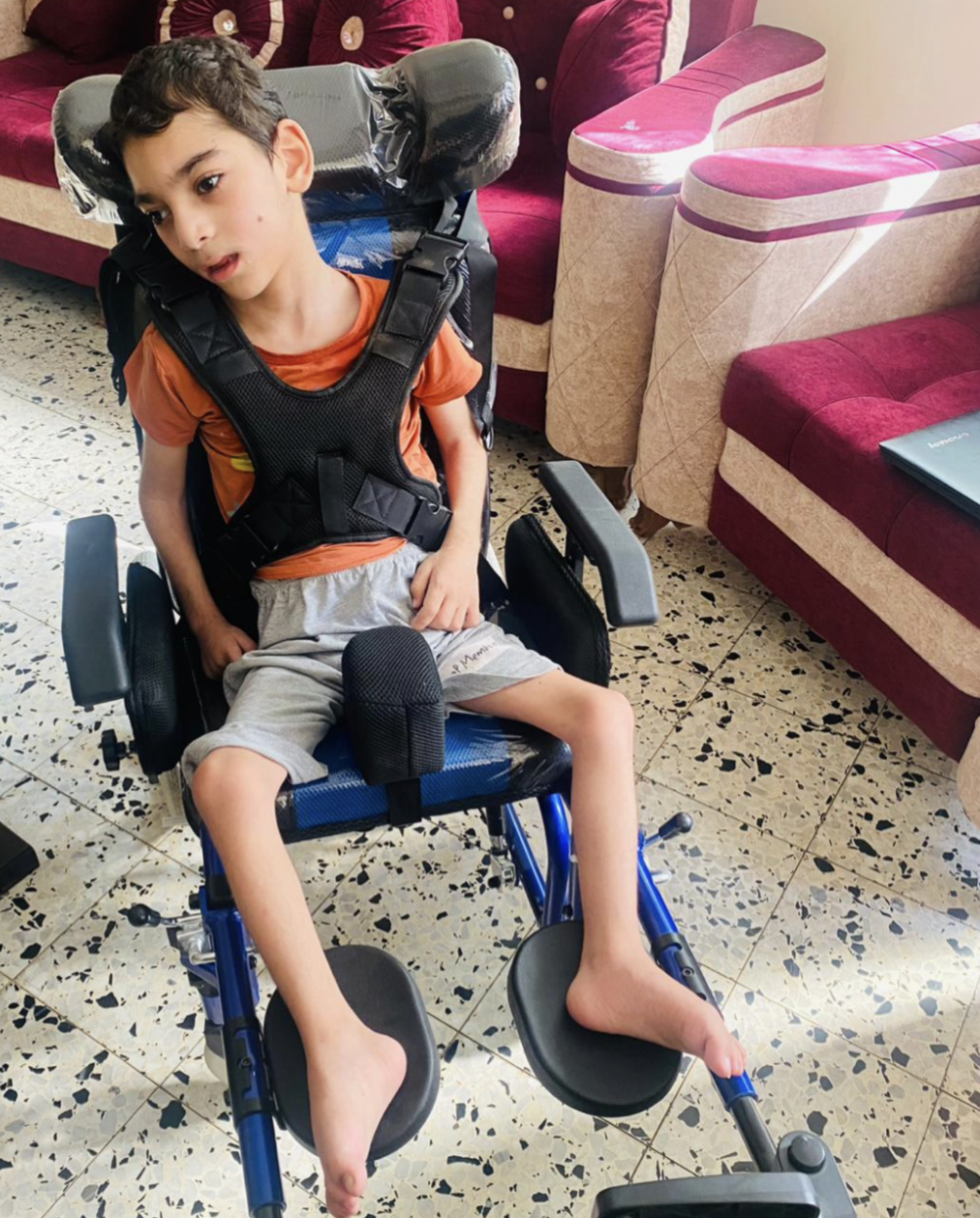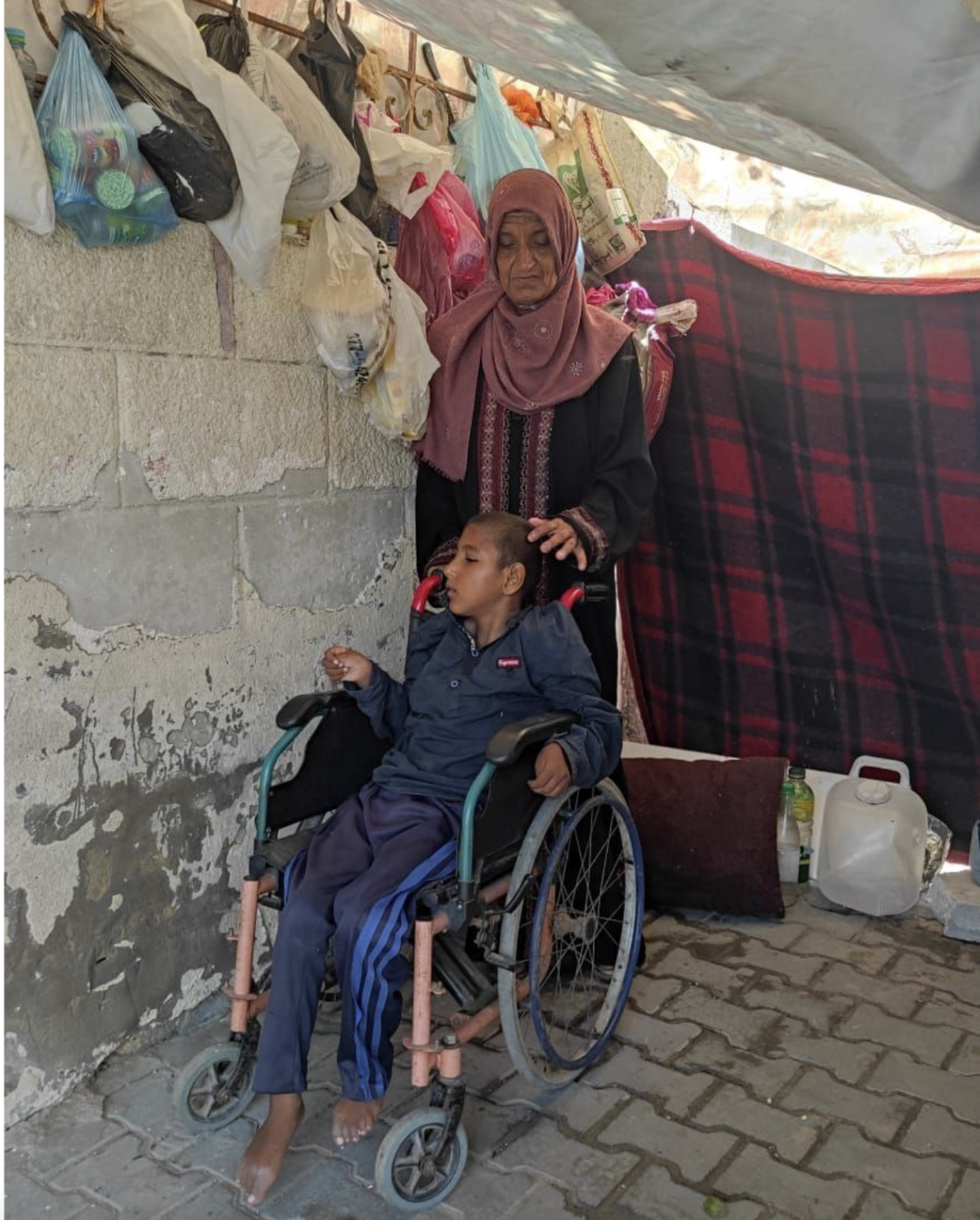Life in Gaza for children with Cerebral Palsy
Adam Al-Maqadma, a 10-year-old from Gaza city with cerebral palsy. Photo credit: Hadi Almaqadma
Over the past two years, I have seen my 10-year old brother Adam Al-Maqadma, who has cerebral palsy, fight a war within a war. He has broken my heart and strengthened my admiration. His once-bright energy has been dimmed by constant pain and fear, his smile more hard-earned and more precious than ever.
But Adam is not alone in this suffering.
According to local estimates, over 6,000 children in the Gaza strip suffer from cerebral palsy. The term "cerebral" refers to the brain, and "palsy" refers to muscle weakness or problems with muscle control. Most of them rely on regular physical therapy sessions, imported medications and special food for their dietary needs.
Before the genocide, children with cerebral palsy had limited but steady access to care in the Strip. Many attended physical therapy sessions two to three times a week at rehabilitation centers or hospitals that helped slow the progression of muscle stiffness. While resources were never abundant, this consistent therapy, along with medication and mobility aids, helped many children maintain their abilities and experience less pain.
As a result of Israel’s ongoing aggression and blockade, their lives have been directly threatened as care disappears and their essential needs can no longer be met.
“What’s happening to these children is a real and silent catastrophe,” said Dr. Alaa Ahmad, a specialist in physical therapy and rehabilitation who treats children with cerebral palsy in Gaza. “The suspension of these sessions, along with malnutrition, leads to serious physical decline—stiff limbs, muscle atrophy, and permanent contractions that become difficult to treat.”
When the war forced our family to flee from al-Twam in northern Gaza to Khan Yunis in the south, I carried him on my shoulders and walked over 13 kilometers, under bombing, fear, and thirst—a painful journey that took more than ten hours on rocky roads under the bombs.
Securing diapers became impossible with prices as high as $5 per diaper. Even then, if we find them, we count ourselves lucky. Everyday we struggle to provide simple meals that suit his condition. Every day is a struggle.
Adam cannot speak, but his eyes say it all: pain, discomfort and desperation.
Like many children who require regular physical therapy, his sessions have completely stopped since the start of the war, leading to muscle stiffness and a noticeable decline in his health, reversing the progress he had been making.
Now, there is no medicine, no therapy, no care—just a long and painful wait.
Since the genocide began, Dr. Ahmad has been visiting children with cerebral palsy in their homes, trying to offer whatever aid and comfort she can. She emphasized that the collapse is not just physical, but psychological too. “The child who used to smile when we arrived for therapy now either becomes aggressive or completely silent,” she said.
Adam Nattat, 8, was making progress in his treatment, but the genocide has stopped all access to his care. Photo: Provided to the author
One of Dr. Ahmad’s patients is 8-year-old Adam Nattat from Gaza. His mother, Noor Nattat, told me: “At the start of the war, his main medication ran out. He would cry and scream all the time. It became nearly impossible to secure his medicine—it was either unavailable or we had to risk our lives going into dangerous areas to find it.” The necessary blood tests to monitor medication levels are also not available, even though these medications affect nerve activity, making accurate doses essential.
“Adam was improving before the war—his speech and ability to sit were getting better. But the absence of therapy and rehabilitation sessions caused a huge setback; his limbs have stiffened again,” said Nattat. “No medicine, no physical therapy, no diapers and no attention. It's as if they don’t exist.”
Hanan Mustafa Shabab with her grandson Mohammed Tamer Hamad, 12, in their tent in Gaza city. Photo Credit: Hadi Almaqadma
Mohammed Tamer Hamad, 12, lives with his 60-year-old grandmother, Hanan Mustafa Shabab, in a tent in the al-Rimal area in Gaza city after being displaced from Beit Hanoun. Mohammed has cerebral palsy and is orphaned; his father was martyred in the 2014 war while repairing power lines.
His elderly grandmother does her best to care for him, but the war has stripped her of all means.
“Mohammed suffers in this hot weather, and his body develops sores … I can’t afford diapers, so I use old clothes and plastic instead,” she said, her voice catching.
Shabab says she has nothing to feed him except what people donate. “When Mohammed is hungry, he cries. I have nothing to give him, so I sit beside him and cry with him.”
In another tragic scene, the Al-Kafarna family from Beit Hanoun lost their child, Yazan Al-Kafarna, who had cerebral palsy, to hunger. The family, already struggling under the weight of war, could no longer find food, medicine, or even the most basic care for him. Yazan was not their only child—his siblings watched in silence as his fragile body grew weaker with each passing day.
In the days before his death, his parents made desperate attempts to find something—anything—to feed him, as his father Sharif Al-Kafarna explained. But food was nowhere to be found, and whatever was available was far beyond what they could afford or reach safely. They tried to comfort him, but the hunger and illness were too strong.
On March 4, 2024, Yazan’s body could no longer endure. He died quietly at home, in the arms of those who loved him, his short life ended not because of his condition, but because Israel denied Yazan what he needed to survive. Israel murdered him.
Yazan was killed in silence, like so many children do every day in Gaza.
As someone who cares for a child with cerebral palsy every single day, I know what it takes to meet their needs — the therapy, the patience, the small victories we work so hard to achieve. I also know how quickly that progress can disappear when care stops.
The stories of my brother Adam, Mohammed, and Yazan are not isolated accidents. Israel’s starvation policy target them, tormenting their hopes and dreams and killing them in silence.
Subscribe to the Palestine Nexus newsletter:




